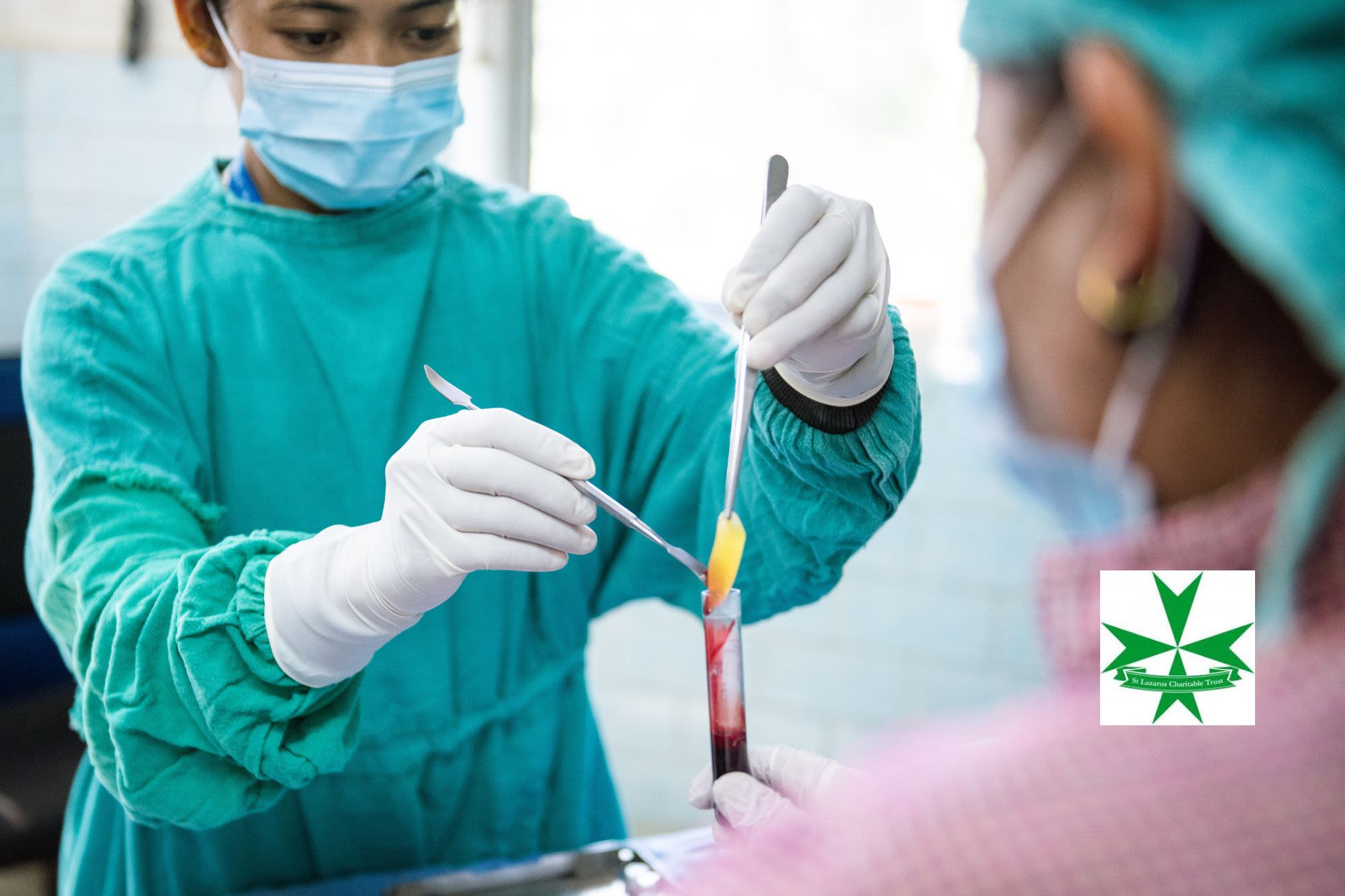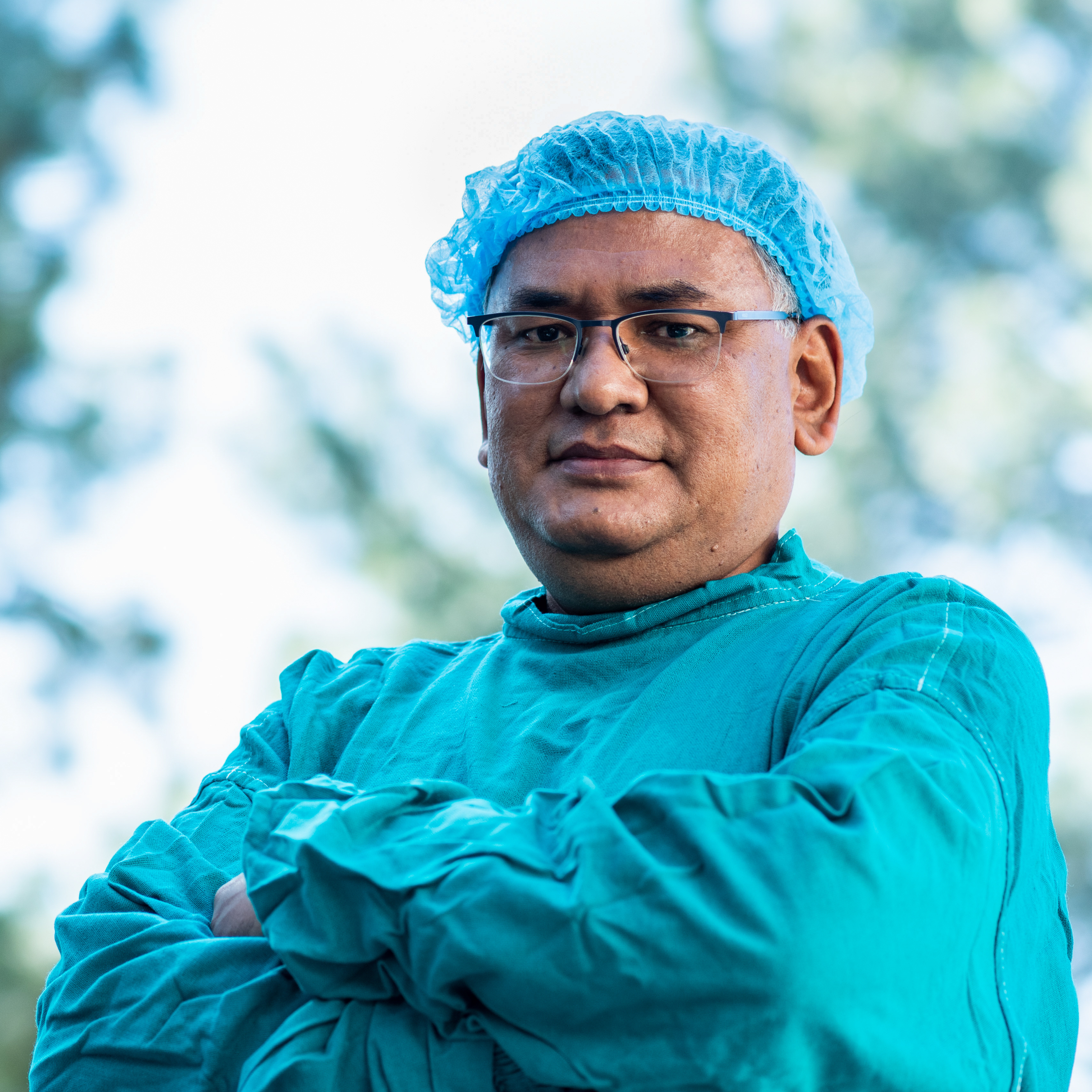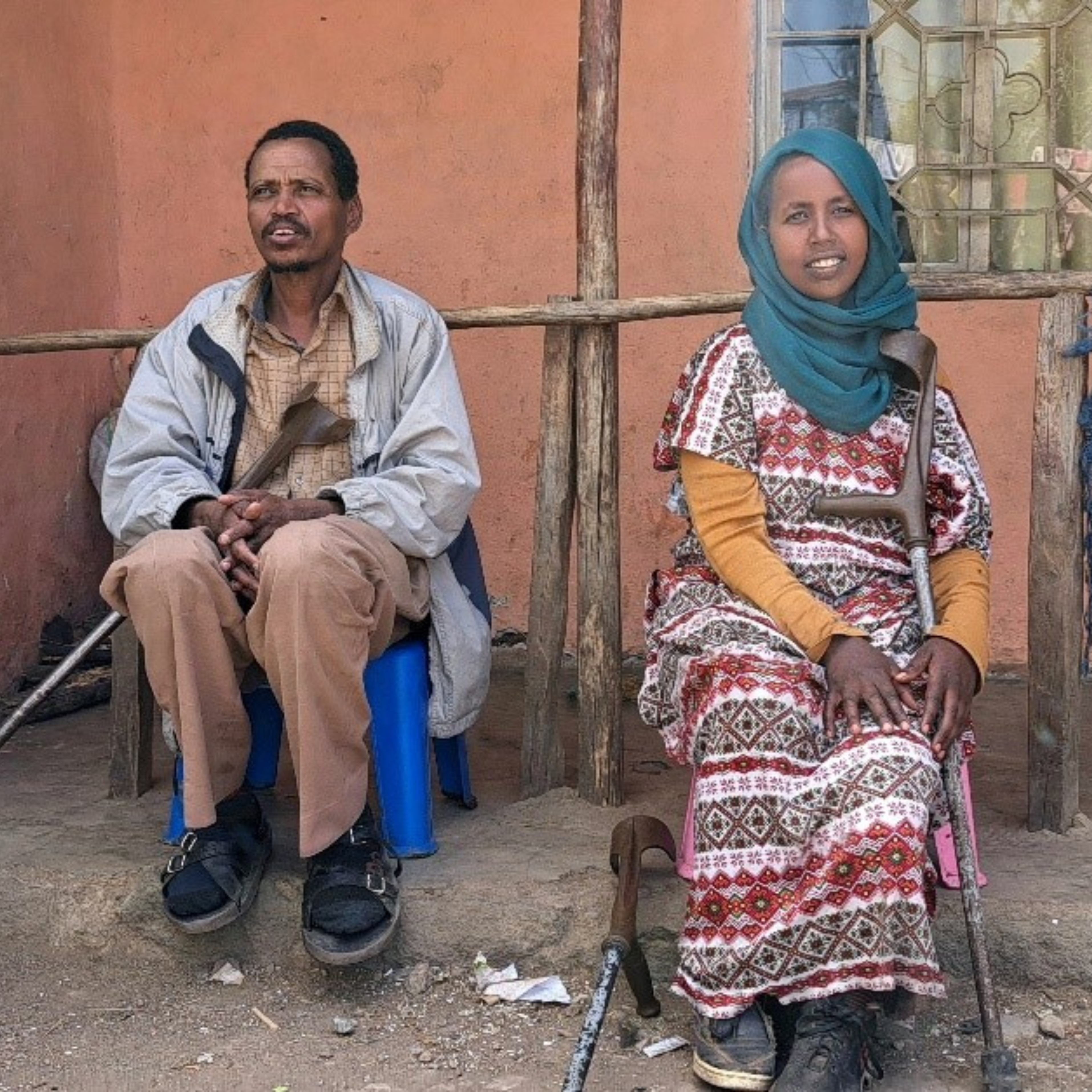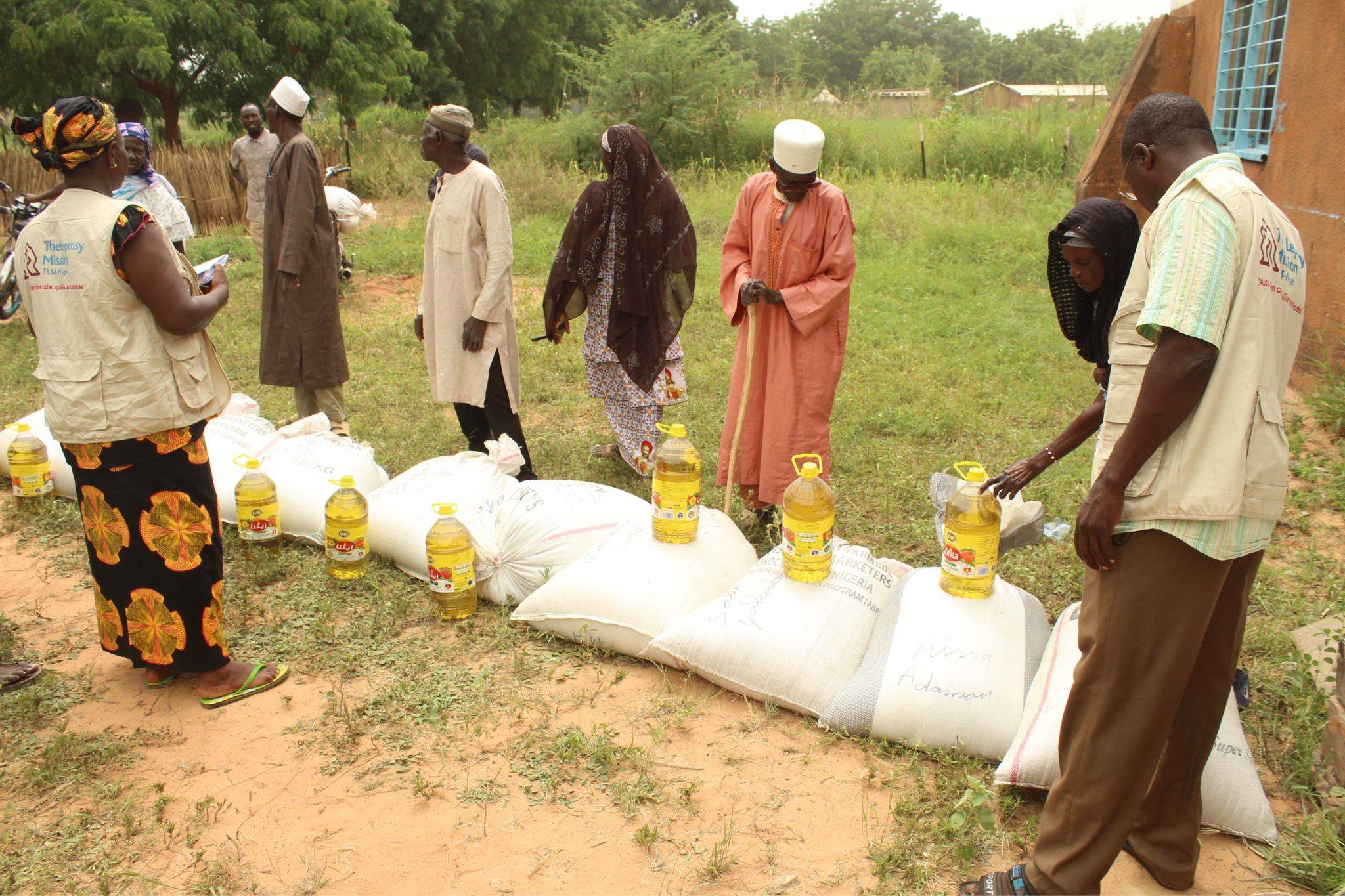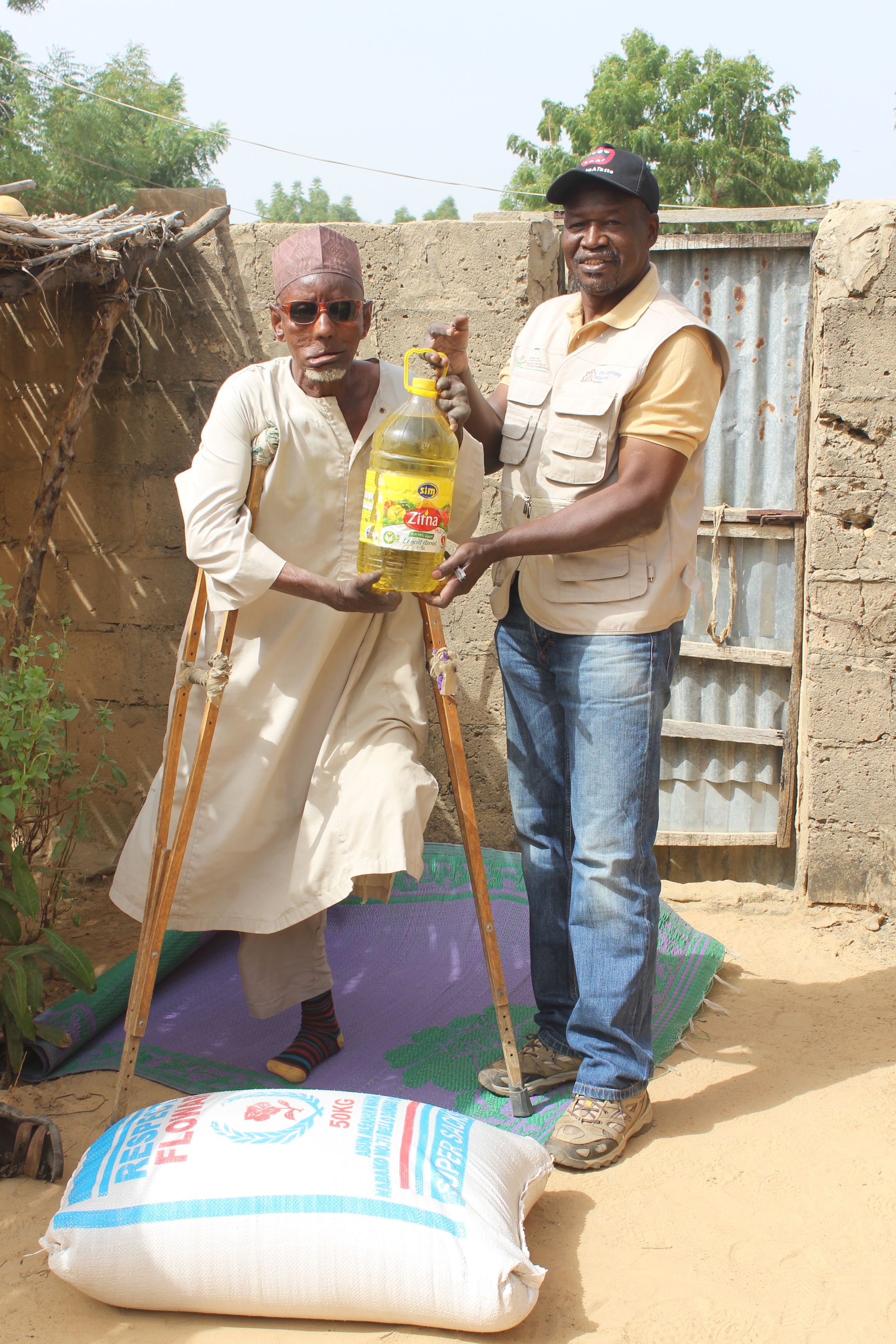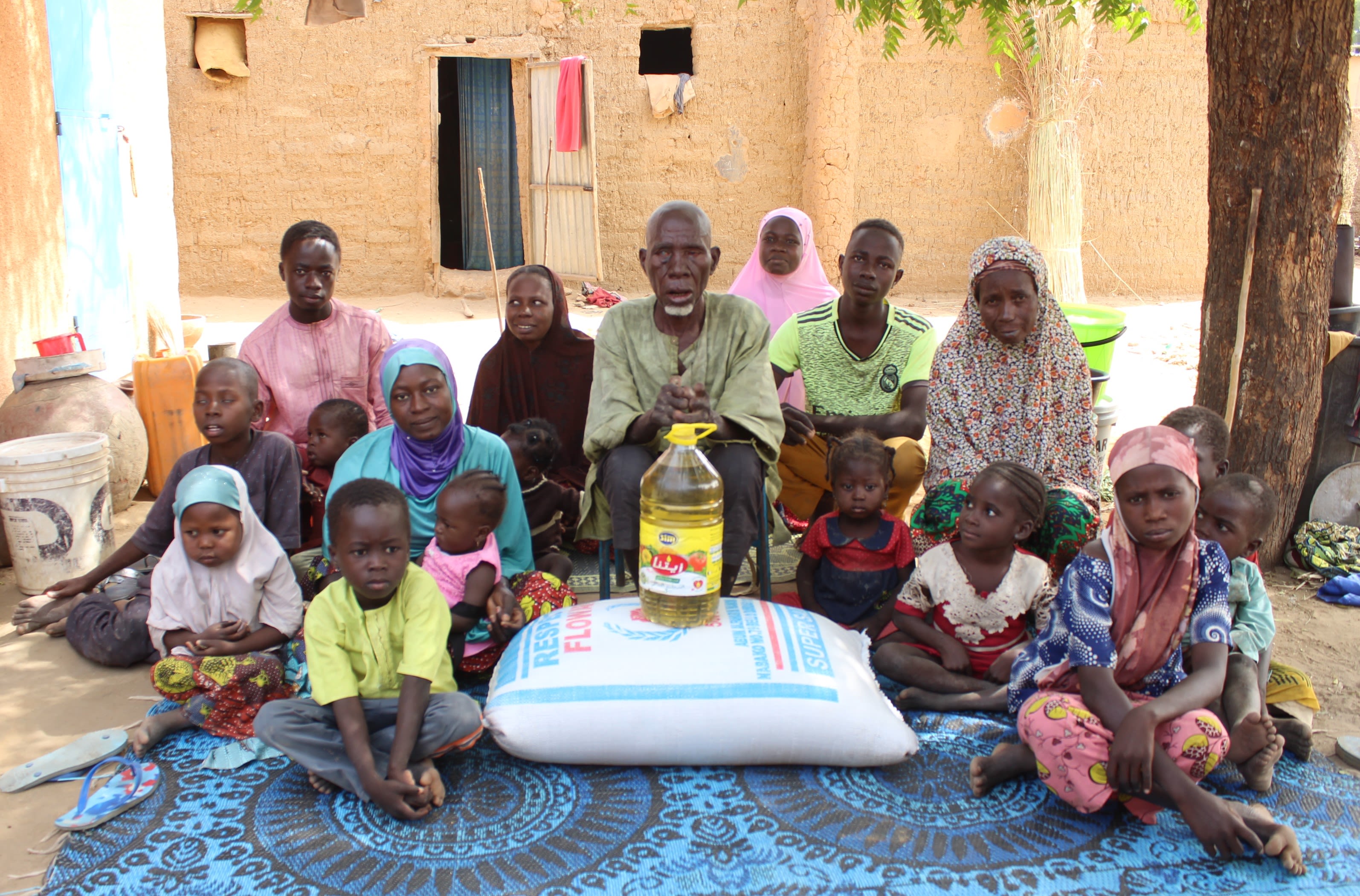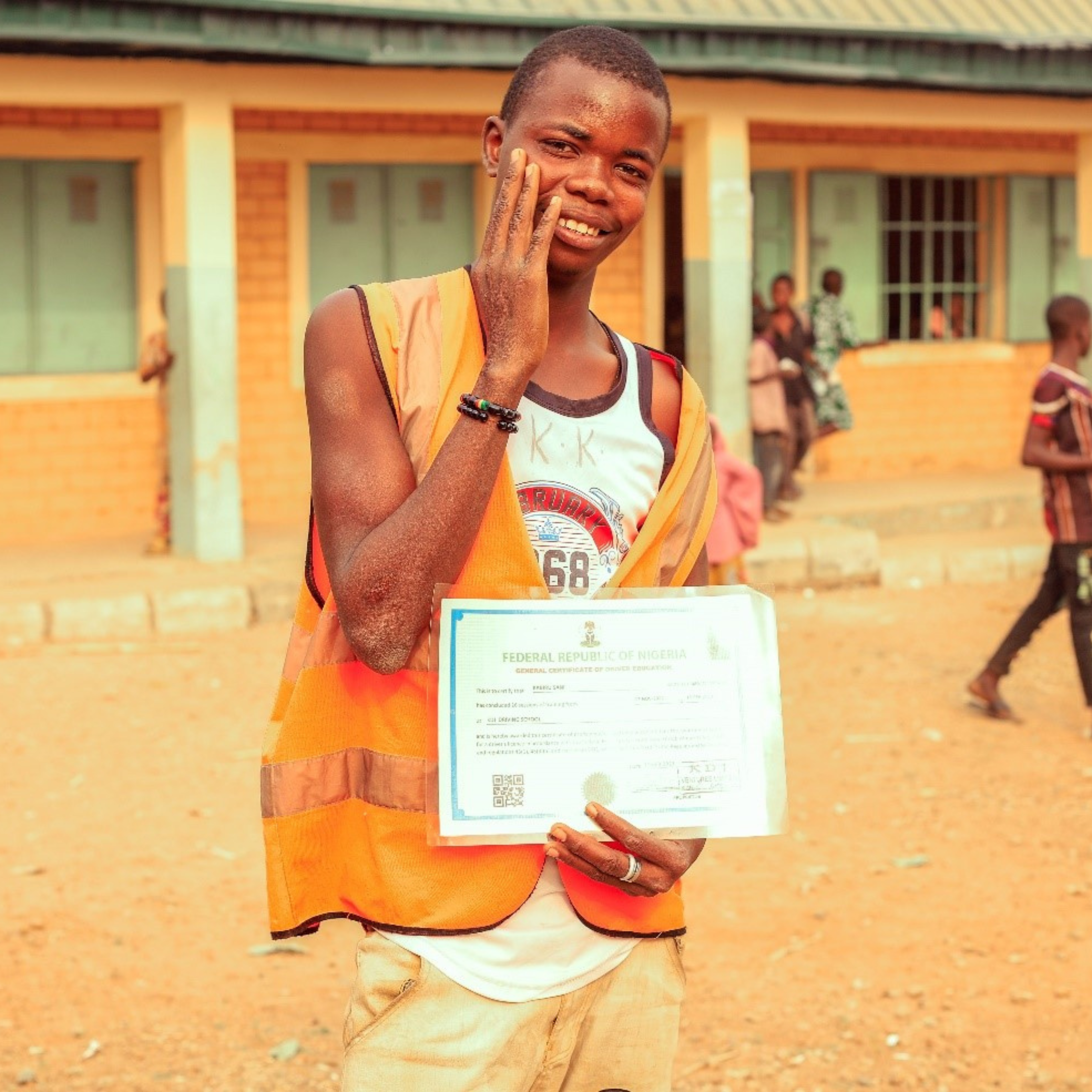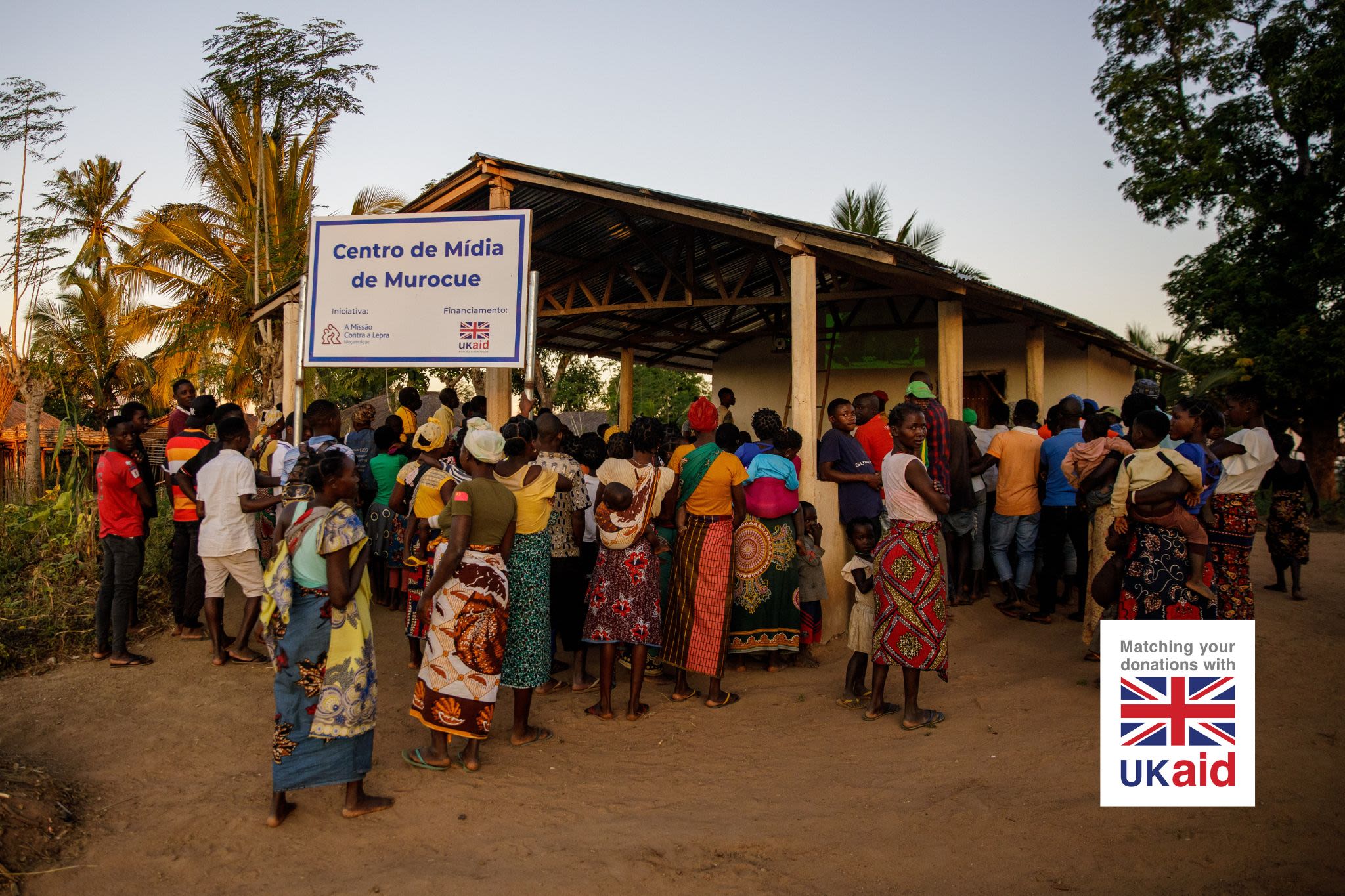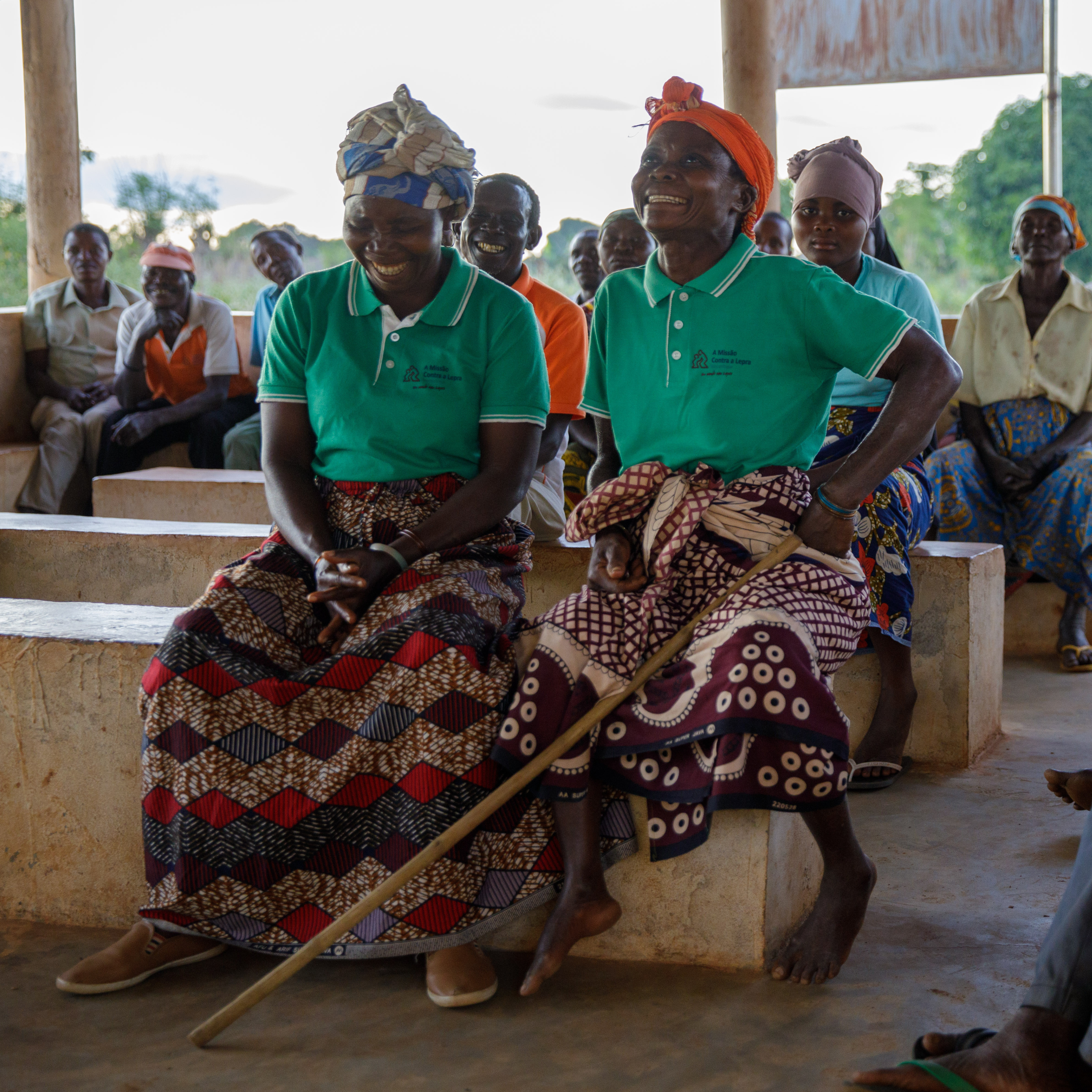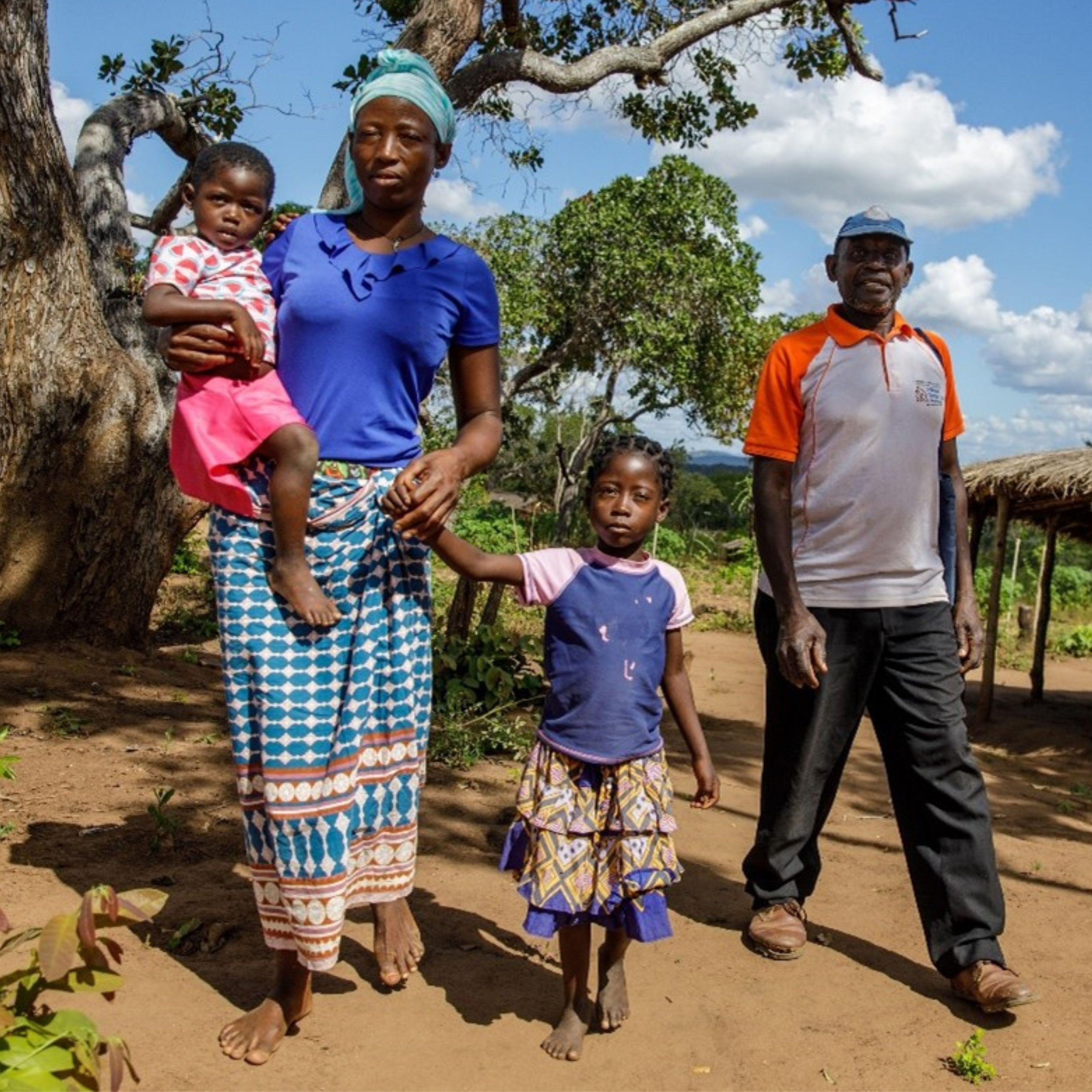Your impact in Africa
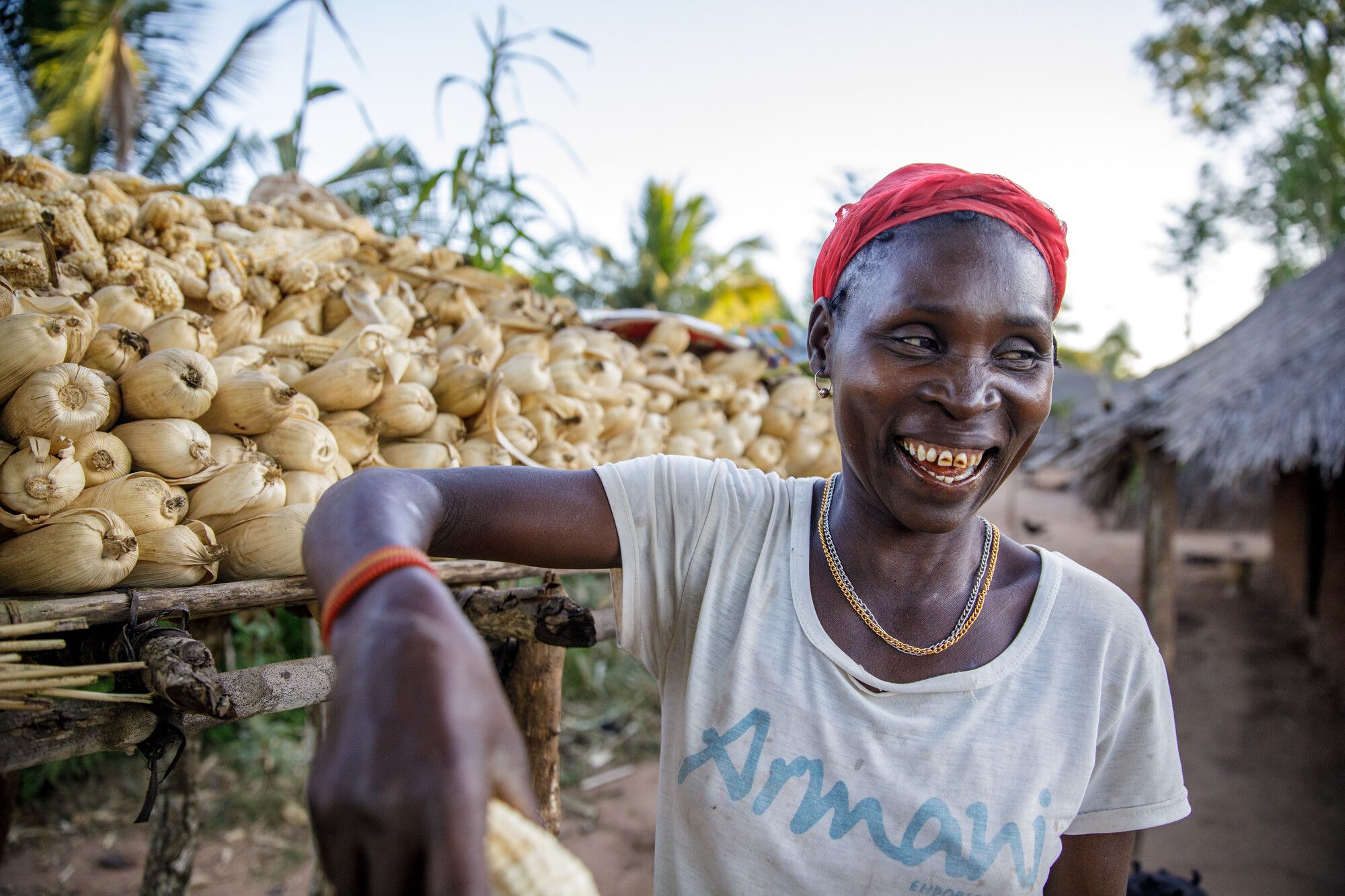
Pioneering treatment is changing lives!
When leprosy damages nerves, subsequent loss of feeling in hands and feet means that injury from everyday activities is common. A simple cut can become infected and ulcerate. One in five leprosy patients develop ulcers. If they won’t heal, ulcers can lead to serious disability and even amputation.
People affected by leprosy often have frequent hospital stays to treat severe ulcers. It can take months of rest for an ulcer to heal in hospital. This has devastating consequences for a daily labourer needing to feed their family. How will their family survive while they are in hospital?
However, a new procedure is speeding up healing time to just weeks! This is thanks to a technique trialled by Dr Indra Napit at Anandaban Hospital in Nepal.
First used in dentistry, Leukocyte and Platelet Rich Fibrin (L-PRF) involves spinning a patient’s blood sample in a centrifuge. This separates the red and white cells into two layers. The white blood cells and platelets coagulate to create a gel membrane. This healing and infection-fighting membrane is applied to the ulcer. The ulcer is then covered with a dressing. The whole process is complete in 30 minutes and dressings are reapplied every week.
The procedure is so simple and yet the results so encouraging. Even deep wounds have completely healed in record time!
In September 2023, Dr Indra travelled to ALERT Hospital in Addis Ababa, Ethiopia. He trained 21 medical staff in the L-PRF technique. The medics were either from the ALERT Hospital or from Boru Meda Hospital in Dessie, a regional leprosy centre.
Thanks to a generous grant by St Lazarus Charitable Trust, each hospital was able to buy a centrifuge. This special funding and your kindness meant that 63 procedures were carried out by the end of 2023!
Dr Indra, Senior Surgeon at Anandaban says, “L-PRF is life-changing for patients. Their wounds heal so much faster. They can return to their families and jobs, if they are blessed to have them, without too much disruption. There are so many benefits all round. Faster healing frees up hospital beds so we can treat more people affected by leprosy. L-PRF is natural, cheap and safe. It is a simple procedure that can be carried out by nursing staff and paramedics.”
Above: A medic performs the pioneering L-PRF treatment to speed up wound healing. (© Sabrina Dangol)
Right: Dr Indra from Anandaban Hospital in Nepal has trained medics in Ethiopia to perform L-PRF treatment. (© Sabrina Dangol)
Below: Ayele, a patient who has benefitted from L-PRF treatment with Birke, his wife.
Ayele's story
Ayele is a patient at ALERT who has benefited from L-PRF treatment. Ayele, 45, has been living with the effects of leprosy for more than 20 years. Despite his best efforts to seek treatment, it was only when he developed ulcers that Ayele's leprosy was diagnosed. He was finally referred to ALERT Hospital, 500km from his home in the Wollega Oromia region.
There is dreadful prejudice surrounding leprosy in Ayele's hometown. So, he decided to stay in a community for leprosy-affected people in Addis Ababa. This was many years ago and he has been cared for by the team at ALERT Hospital since.
Because leprosy has robbed Ayele of feeling in his feet, he has suffered from terrible ulcers. This has caused him difficulties in working and has affected his emotional wellbeing.
But in late 2023, Ayele was offered L-PRF treatment on a large ulcer on his foot measuring 4cm by 3cm. The ulcer had caused him untold difficulties for years. He lived in danger of needing his foot amputating should it become severely infected. But after three rounds of LPRF, the ulcer that had plagued Ayele for so long has completely healed!
Ayele's and his wife Birke, who is also disabled, are overjoyed! Ayele believes it to be a miracle from God. He had lost hope in finding a solution for the ulcers that had made his life difficult for years. But now they are finally healed!
The medical team trained in the procedure in Ethiopia are also amazed by the success of L-PRF. They asked for their thanks to be given to supporters and St Lazarus Charitable Trust. They say they are so grateful for the difference it is making to their patients' lives.
Emergency food parcels at a time of crisis
Because of you 322 families received lifesaving food parcels in Niger. You fed 34 leprosy patients at Danja Hospital where The Leprosy Mission provides services. You also ensured that the hospital had a reliable power supply.
Niger is one of the poorest countries in the world. It is extremely vulnerable to climate change. As a result, there have been frequent droughts and failed harvests over the past 20 years.
In July 2023, life became even harder for the people of Niger. A military coup took place, and the democratically elected president was overthrown. Prior to the military coup, nearly half the population of Niger was living in extreme poverty. Tragically that number has since rocketed.
As a result of the political situation, the landlocked country's borders were shut. Trade came to a standstill. There were severe power cuts and sharp rises in food and fuel prices. The result for people affected by leprosy was starvation. Some families were struggling to feed themselves just one meal a week. It was an incredibly distressing time for our compassionate team in Niger.
We would like to thank you for your love and care for the people of Niger during this hardest of times. You enabled food parcels of millet and vegetable oil to be delivered to starving people. Millet forms the staple diet in Niger and families often eat it three times a day. Sometimes it is made into a soup with water or milk. In more prosperous times spices or sugar is added should they be available.
Our project manager Sani delivered the food parcels to families living in eight leprosy communities.
He said: “It is such a joy to see people’s hope restored, and joy has been brought to the hearts of people affected by leprosy. The fight for survival here is something we are used to. But the compassion you have shown helps us realise we are not forgotten. Thank you for loving these people.”
Above: Colleagues from The Leprosy Mission Niger distribute emergency aid to people affected by leprosy.
Right: Sani, pictured with Ahmed, was joined by a volunteer on his deliveries. Security measures were put in place to protect their safety. In the areas they visited there is a high risk of attack by bandits.
We provide our leprosy patients with three meals a day. The rising food costs have made this difficult at Danja Hospital, but our patients deserve the best care. The patients have been so thankful for the food and do not take it for granted.
Mahamadou Sani Oumarou, a leprosy patient at Danja Hospital, said: "As a patient, I don’t know how to express my gratitude for three meals a day. No one at home eats this well. I say thank you very much, thank you really for everything.”
Your gifts also enabled a stable electricity connection through the hospital's generator. This is essential for medical equipment, lab diagnostic tests and surgical instruments.
Despite the troubles in Niger in 2023, your gifts enabled 300 people to be found and cured of leprosy. More than 100 government health workers were trained to diagnose and treat leprosy. More than 100 community volunteers received training to spot the early signs of the disease. They are now equipped to signpost people to health workers for a formal diagnosis and the cure.
Thank you for all you are doing for the people of Niger.
Left: A family receives food aid in Niger.
Opening minds and getting lives back on track
Leprosy is a cruel physical disease which attacks the body. Yet the mental torment that so often goes hand in hand with leprosy is often the hardest symptom to bear.
The prejudice surrounding leprosy can devastate children and young people, changing the course of their lives. Even when cured, stigma and fear often mean they are cut off from friends and in some cases even excluded from school! No child should have to face this just because of leprosy. A young person who is linked to a family member with the disease can often have less opportunities, even though they have never had leprosy themselves. It is so unjust, and it’s no surprise that mental health is damaged as a result.
Thanks to Comic Relief funding for the Open Minds project in Nigeria, 4,762 children and young people have been screened for mental illness. These are children living in communities affected by leprosy in Sokoto, Kebbi and Federal Capital Territory. As a result of this work, 1,457 children and young people have received support to improve mental health. This included counselling or specialist care for severe anxiety and depression. It’s wonderful to see that many of these young people are now active members of support groups.
Providing opportunities for young people affected by leprosy improves wellbeing. As a result of Open Minds, four young people were recognised as gifted in the area of IT. In 2023 they attended a free six-week training course, preparing them to work in the IT sector.
Others like Sani, pictured here, have learnt to drive. Sani's older brother had leprosy and Sani was discriminated against as a member of the same family. He felt there was no hope for his future and was understandably depressed. Thankfully, he was found by staff working on the Open Minds project and joined a support group. Talking with other young people in similar situations has improved his wellbeing. On passing his driving test Sani expressed his gratitude for the support he has received. "This is the first certificate I have ever received in my life," he beamed.
Open Minds was instrumental in advocating for a new Mental Health Bill, which was introduced in Nigeria in 2023. It replaced the Lunacy Act 1958 which discriminated against people with mental health conditions. Through Open Minds, a total of 469 frontline workers have been trained to apply the new mental health act. These include teachers, social workers, mental health professionals and primary healthcare workers.
Our new Farinciki project is building on the successes of Open Minds, which ends in June 2024. Farinciki is the Hausa word for 'inner peace' and is improving access to mental health services. Farinciki began in March 2023.
No one should suffer poor mental health or lack opportunity in life because of leprosy. We are grateful that, through Open Minds and your gifts, so many people have been able to move forward and live happier lives.
Left: Sani, 24, comes from a family affected by leprosy. Through Open Minds Sani has received mental health support and the opportunity to learn to drive. He is pictured holding his test certificate.
Hope and healing in war-torn Cabo Delgado
Northern Mozambique continues to be blighted by violence and fear. But new Hubs of Hope are fast becoming centres of hope for the future.
Life is tough in Cabo Delgado, the most northern province of Mozambique. Its people have lived amidst escalating violence since 2017. More than 4,000 people have been killed. The United Nations states that almost a million people have been forced to flee their homes. It is against this backdrop that the amazing work in the hubs has taken place.
The Hubs of Hope have been built through your giving to the ‘Unconditional’ campaign back in 2021. The campaign was awarded UK Aid Match funding. This meant that every pound given was matched by the UK government. We are so thankful for everything that has been achieved through this opportunity.
The hubs, known locally as media centres, are literally beacons of your light! They are often the only place in a village with electricity and an internet connection. They are places for everyone and are buzzing with life seven days a week. People can find out about leprosy through the work carried out at the hubs. They are also able to live healthier and more prosperous lives.
At the Hubs of Hope, 400 members of the community have been trained as Leprosy Changemakers. People like Eduardo, who you can see pictured below with Clementina. Eduardo is on his village's leadership team and has a real heart for people affected by leprosy. Through his training as a Leprosy Changemaker, he is now able to recognise the early signs of the disease.
Thanks to the work of the Changemakers, 1,945 people have been cured of leprosy since the project began in 2022. But this only happened because you provided training for 43 government health workers. Now Leprosy Changemakers refer people to these vital health workers. The training ensures no leprosy case is misdiagnosed or missed through ignorance.
Each week at the hubs, people affected by leprosy meet together in self-care groups. As well as a place where friendships are made, members help one another to avoid disability. As leprosy can cause loss of feeling in hands and feet, they are vulnerable to injury. The groups teach people how to prevent accidents like burns while cooking. A total of 1,117 people are now self-help group members.
People living in rural Cabo Delgado mainly survive through subsistence farming. In recent years they have lost crops to Cyclone Kenneth and Cyclone Idai. Extreme weather events like these are becoming more frequent due to climate change. At the hubs, the farmers receive training on how to protect their crops against these global changes. They are also taught how to market their surplus crops to provide an income.
Savings groups meet at the hub to help support anyone who has a financial emergency. Group members are encouraged to save for challenging times ahead. A total of 2,920 people are now part of a savings group.
Not a day goes by when the hubs aren't in use. Whether it is an adult literacy class or a movie screening, they are at the beating heart of their community. Because of your gifts, the tide is beginning to turn in the fight against leprosy. Thank you for bringing health, hope and prosperity to Cabo Delgado.
Above and left: Villagers gather at a community hub to support each other and learn new skills. (© Ricardo Franco)
Below: Leprosy Changemaker Eduardo has been a true friend to Clementina and her family since they arrived in their new village. (© Ricardo Franco)
Clementina's story
Clementina has been blessed against all odds by the Unconditional campaign. Clementina was subjected to unspeakable violence when insurgents descended on her home village. Together with her husband and children, Clementina fled this part of Cabo Delgado. They ran for their lives leaving behind everything but the clothes they were wearing.
Yet an unexpected blessing came from this terrible day. The gift of health for their daughter, Elisa. When Elisa was just a toddler, discoloured patches began to appear on her skin. Despite Clementina's best efforts, she was unable to find out why. She felt helpless and anxious as she watched her daughter’s health deteriorate.
Having settled in their new village, the family visited the chief and showed him their daughter’s skin patches. She had almost given up hope but was encouraged when he quickly called for Eduardo. Eduardo had trained as a Leprosy Changemaker and knew that it was leprosy. He became a friend to the family and went with them to the hospital.
It is because of you that a bright future awaits the clever and happy five-year-old Elisa. While her devoted mother was able to shield her from violence, your gifts have restored her to health.
"When we arrived here, we thanked God for keeping us safe," said Clementina.
"It was awful, yet running away from the attackers meant my daughter’s leprosy was diagnosed and treated. I am so grateful."

